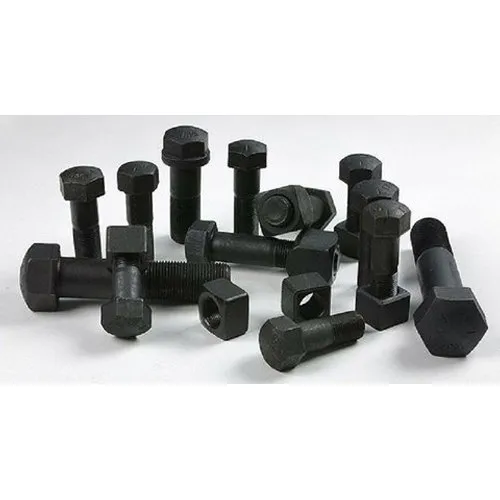
Excavator bolts in Chennai are specialized fasteners built to handle the heavy loads, shocks, and vibrations of construction equipment. Used in critical areas like track shoes, sprockets, bucket teeth, and cutting edges, they ensure machine reliability and safety. Designed with high tensile strength, heat treatment, and protective coatings, these bolts resist wear and corrosion while maintaining a secure fit under extreme conditions. Choosing the right bolt is vital to prevent downtime, extend component life, and keep excavators performing at their best.
Excavator bolts are specialized high-strength fasteners used to secure vital parts like buckets, teeth, tracks, and undercarriage components. Built to handle heavy loads, shock, and constant vibration, they differ from regular bolts with features such as hardened surfaces and unique head designs that prevent loosening under tough conditions.
Strength & Stability: Keep heavy components securely in place.
Safety: Prevent dangerous part failures during operation.
Cost Savings: Reduce wear, downtime, and repair frequency.
Durability: Resist fatigue, corrosion, and loosening for longer service life.
Though small in size, excavator bolts are the backbone of machine reliability, directly affecting performance, safety, and overall efficiency.
Excavator bolts are designed for specific roles, ensuring strength and reliability under heavy loads and vibration.
Track Bolts (Shoe/Plow Bolts): Fasten track shoes to chains; low-profile heads prevent wear.
Segment Bolts: Attach sprocket segments to the final drive; ensure smooth power transmission.
Bucket Teeth & Adapter Bolts: Secure teeth and side cutters to buckets; withstand direct digging impact.
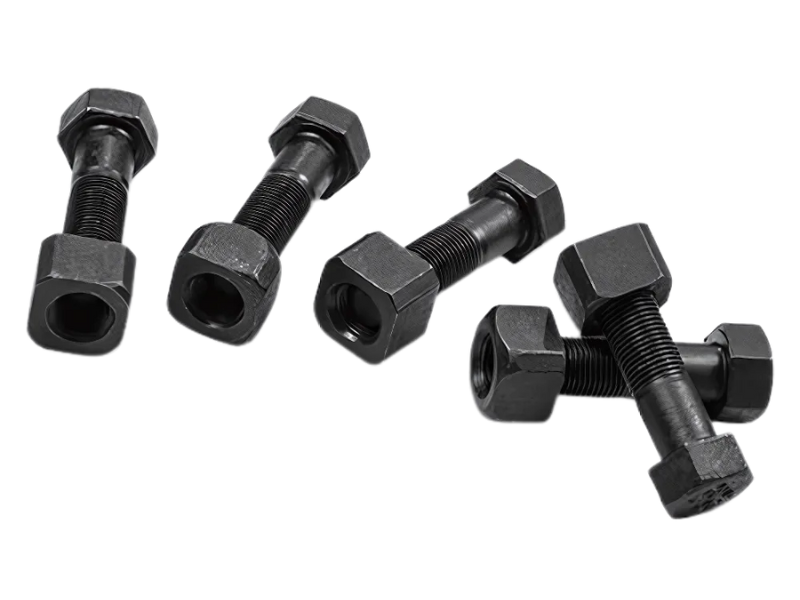
Excavator bolts are designed to withstand heavy loads, vibration, and harsh environments. Their strength and durability come from two key factors: material choice and heat treatment.
High-Strength Alloy Steels: Medium-carbon steels with alloying elements like chromium or molybdenum provide the right balance of hardness, ductility, and fatigue resistance.
Protective Coatings: Zinc plating, phosphate, or black oxide finishes safeguard bolts against rust and abrasion in wet or muddy conditions.
Excavator bolts are built with precision to handle extreme loads, vibration, and harsh environments.
Head Profiles: Hex heads for strength, plow/dome heads for flush fit on tracks and buckets, countersunk heads for smooth surfaces.
Shank & Threads: Partially threaded for shear resistance; fine threads for strength, coarse threads for quick grip.
Surface Coatings: Zinc, black oxide, or anti-corrosion coatings to protect against rust and wear.
Excavator bolts face constant vibration, shock, and harsh conditions that can cause them to loosen. To prevent failures, two key strategies are used: anti-seize protection and locking methods.
Applied to bolt threads, anti-seize helps by:
Preventing galling and seizing during tightening.
Protecting threads from rust and corrosion.
Ensuring consistent torque application.
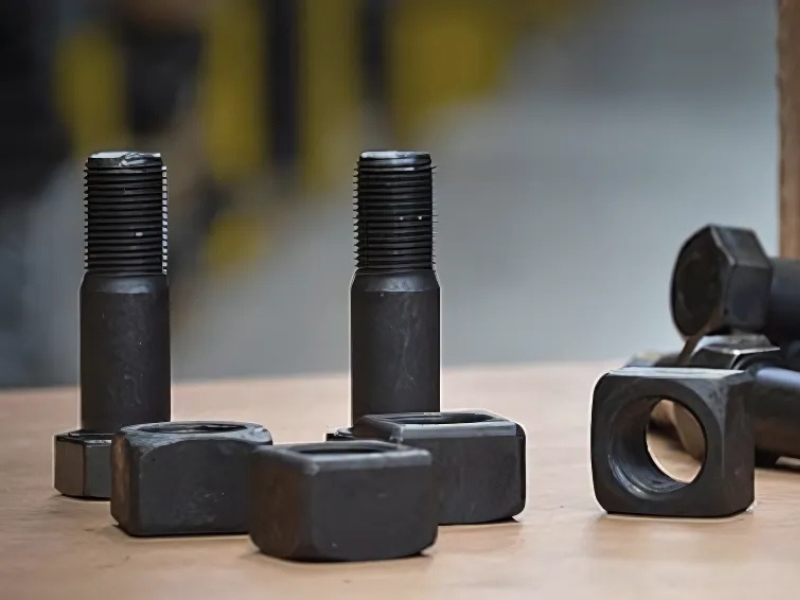
Excavator bolts play a critical role in holding major components together, so proper care ensures machine safety and uptime.
Regular Inspections: Check for looseness, wear, corrosion, or damage. Verify tightness using a torque wrench.
Correct Torque: Always follow OEM torque values and tightening sequences to avoid under- or over-tightening.
Choosing the right bolt is critical for excavator safety, performance, and durability. Here’s what to check:
Track bolts → handle shear forces
Bucket bolts → resist impact & wear
Correct diameter, length, and pitch as per OEM manual.
Wrong fit can strip threads or weaken joints.
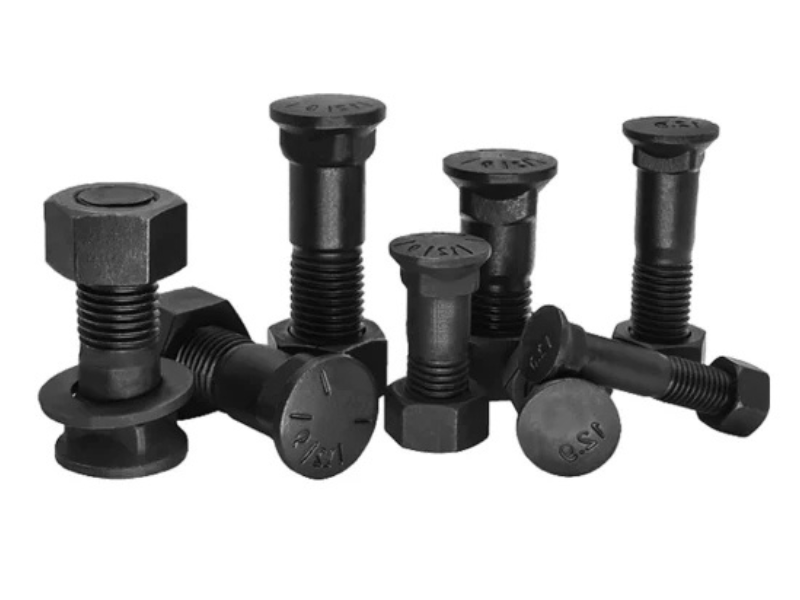
Excavator bolts may be small, but they hold the entire machine together under extreme stress. Using high-quality bolts ensures:
Safety under heavy loads – preventing shearing, cracking, or loosening during intense digging and lifting.
Reduced downtime – minimizing breakdowns and costly project delays.
Q1. What are excavator bolts?
Heavy-duty fasteners that secure track shoes, buckets, and undercarriage parts for safe operation.
Q2. What types are used?
Track shoe bolts, plow bolts (cutting edge), bucket tooth bolts, and general hex bolts.
Q3. What do grades 8.8, 10.9 & 12.9 mean?
They show strength levels – 8.8 (standard), 10.9 (high strength), 12.9 (ultra-strong).
Q4. What are they made of?
Mainly alloy or carbon steel with heat treatment for durability.
Q5. How to stop bolts from loosening?
Use lock nuts, washers, thread-lockers, and correct torque.
Q6. How often should they be checked?
Inspect regularly, daily in tough jobs, and replace if worn, cracked, or corroded.
Q7. Can old bolts be reused?
Not advised—fatigue and stretching can weaken them.
Q8. What if the wrong bolt is used?
It may loosen, damage parts, or cause unsafe failures.
Q9. Are bolts standard across all brands?
Not always—many follow standards, but some OEMs use unique sizes.
Q10. How to maximize lifespan?
Use quality bolts, tighten correctly, and check them often.
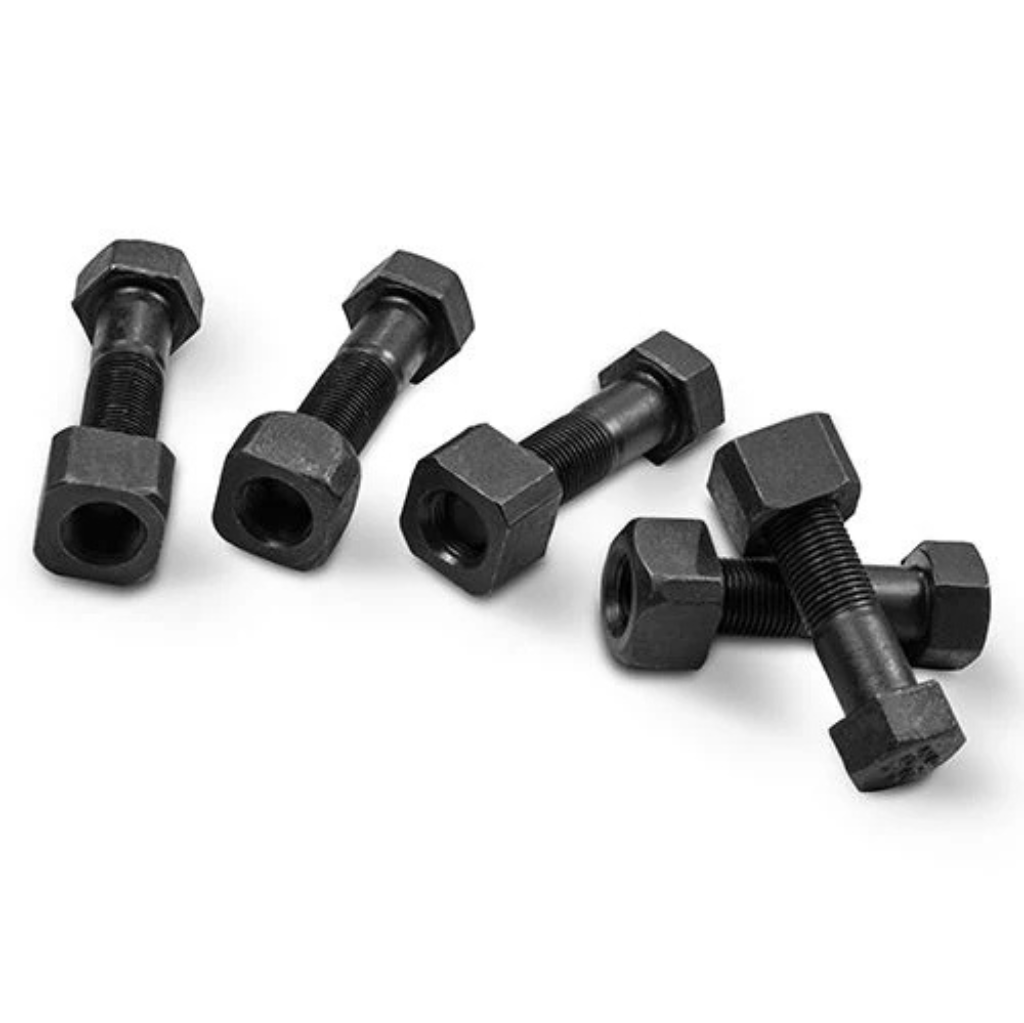
Excavator Rock Bucket | Excavator Skeleton Bucket | Excavator Trapezoidal Bucket | Excavator Soil Bucket | Excavator Loader Bucket | Excavator Single-Shank Ripper | Excavator Triple-Shank Ripper | Excavator Track Link Assembly | Excavator Tooth Points | Excavator JCB Teeth & Side Cutter | Excavator Idler | Excavator Sprocket | Excavator Lower Roller | Excavator Undercarriage | Excavator Track Group | Excavator Bolts | Excavator Rock Bucket in Chennai | Excavator Skeleton Bucket in Chennai | Excavator Trapezoidal Bucket in Chennai | Excavator Soil Bucket in Chennai | Excavator Loader Bucket in Chennai | Excavator Single-Shank Ripper in Chennai | Excavator Triple-Shank Ripper in Chennai | Excavator Track Link Assembly in Chennai | Excavator Tooth Points in Chennai | Excavator JCB Teeth & Side Cutter in Chennai | Excavator Idler in Chennai | Excavator Sprocket in Chennai | Excavator Lower Roller in Chennai | Excavator Undercarriage in Chennai | Excavator Track Group in Chennai | Excavator Bolts in Chennai | Excavator Rock Bucket in India | Excavator Skeleton Bucket in India | Excavator Trapezoidal Bucket in India | Excavator Soil Bucket in India | Excavator Loader Bucket in India | Excavator Single-Shank Ripper in India | Excavator Triple-Shank Ripper in India | Excavator Track Link Assembly in India | Excavator Tooth Points in India | Excavator JCB Teeth & Side Cutter in India | Excavator Idler in India | Excavator Sprocket in India | Excavator Lower Roller in India | Excavator Undercarriage in India | Excavator Track Group in India | Excavator Bolts in India
TEAM. All Rights Reserved. Developed by Pixel Tech.